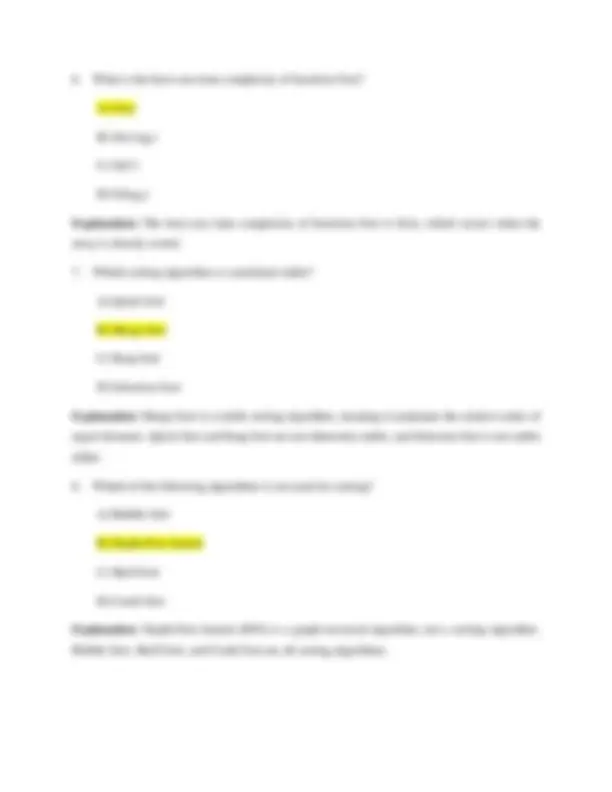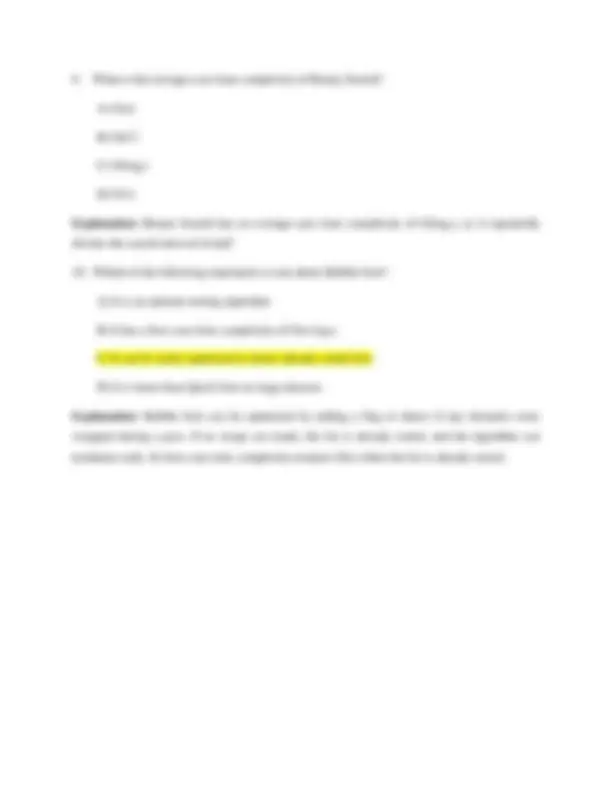




Study with the several resources on Docsity

Earn points by helping other students or get them with a premium plan


Prepare for your exams
Study with the several resources on Docsity

Earn points to download
Earn points by helping other students or get them with a premium plan
Community
Ask the community for help and clear up your study doubts
Discover the best universities in your country according to Docsity users
Free resources
Download our free guides on studying techniques, anxiety management strategies, and thesis advice from Docsity tutors
A quiz on search and sorting algorithms, covering topics such as bubble sort, selection sort, merge sort, quick sort, linear search, binary search, heap sort, radix sort, insertion sort, and depth-first search. It includes explanations for each question and the time complexities of various algorithms.
Typology: Quizzes
1 / 4

This page cannot be seen from the preview
Don't miss anything!



Subject : Algorithm Parallel Processing Faculty : Industrial Technology Program of Study : Informatics Engineering Major Years : 2024 Search And Sorting Algorithm Quiz